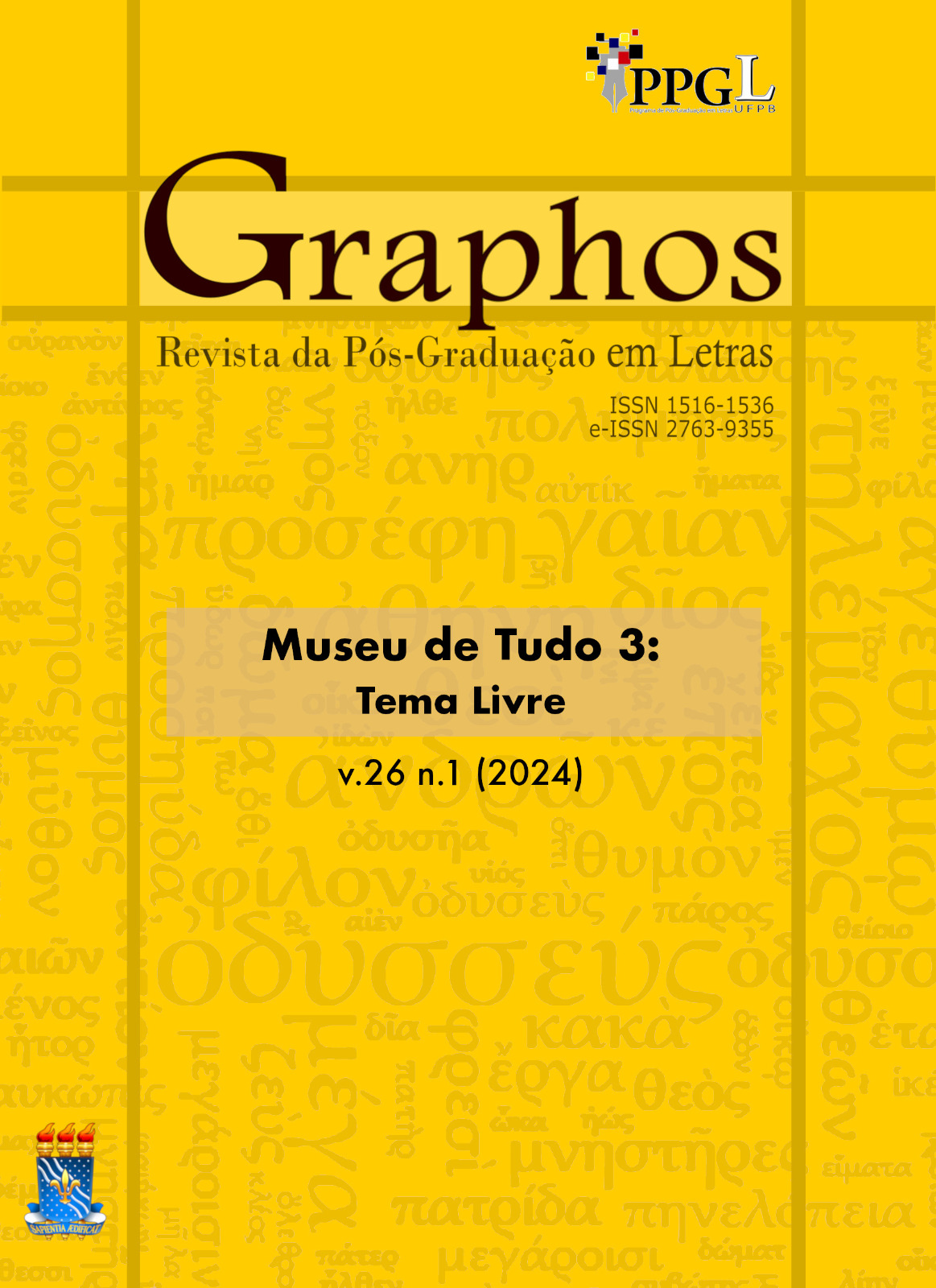ASPECTS OF FEMINISM IN FEMINIDADES AND UN TEMA VIEJO, BY ALFONSINA STORNI
Keywords:
Comportamentos femininos; feminismo crítico; vida moderna.Abstract
This article seeks to explore feminism as a political, social, and ideological movement aimed at promoting structural and behavioral changes in society concerning women's emancipation and their role in confronting patriarchy. The study is grounded in the critical perspective of Alfonsina Storni, one of the most significant Latin American writers of the early 20th century. The research focus on two essays she published in 1919 in the magazine La Nota: Feminidades and Un tema viejo, respectively. These texts serve as the foundation for analyzing Storni's critical theory of feminism, complemented by discussions of key theoretical frameworks, such as Cixous (2022), regarding women's writing and literature as a vital medium for advancing the feminist movement; Lerner (2019), addressing the development of a feminine culture as a tool for deconstructing patriarchal oppression; and Astrada (1967), Herrán (2001), and Diz (2004) on Storni's work. Additionally, Bernan (1986) provides insights into the characteristics of modernity in everyday life and Storni's literary output, alongside other scholars who support the arguments presented in this study.
Downloads
References
ASTRADA, Etelvina. Figura y significación de Alfonsina Storni. In: Agencia Española de Cooperación Internacional para el Desarrollo, 1967. Disponível em: https://www.cervantesvirtual.com/buscador/?q=alfonsina+storni+%28revista+nosotros%29. Acesso em: 01 dez. 2023.
BERMAN, Marshall. Tudo que é sólido desmancha no ar: a aventura da modernidade. Trad. Carlos Felipe Moisés, Ana Maria L. Ioratti e Marcello Macca. Editora Schwarcz: São Paulo, 1986.
CIXOUS, Hélène. Efeito de espinho rosa, 2010. In: CIXOUS, Hélène. O riso da Medusa. Trad. Natália Guerellus e Raísa França Bastos. 1ª ed. Rio de Janeiro: Bazar do tempo, 2022a. p. 27-40.
CIXOUS, Hélène. O riso da Medusa. Trad. Natália Guerellus e Raísa França Bastos. 1ª ed. Rio de Janeiro: Bazar do tempo, 2022.
DIZ, Tania. Sobre cuerpos, ironías y otros decires: “Feminidades” de Alfonsina Storni. In: GUZMÁN, Lucía Stecher; JARA, Natalia Cisterna (Orgs). América Latina y el Mundo Exploraciones en torno a identidades, discursos y genealogías. Centro de Estudios Culturales Latinoamericanos Facultad de Filosofía y Humanidades, Universidad de Chile: Chile, 2004. p. 83-98.
GUTIÉRREZ LARRETA, Carlos. Comités femininos. In: La Nota. Año IV. Nº 193, p. 461-462, 18 de abril de 1919.
HERRÁN, Teresa Leonardi. Alfonsina Storni la com el rebaño. In: Claves, Año X. Nº 105, p. 14-17, noviembre de 2001. Disponível em: www.ahira.com.br. Acesso em: 02 dez. 2023.
LERNER, Gerda. A criação do patriarcado: história da opressão das mulheres pelos homens. Trad. Luiza Sellera. São Paulo: Cultrix, 2019.
STORNI, Alfonsina. Feminidades. In: La Nota. Año IV. Nº 190, p. 406-407, 28 de marzo de 1919.
STORNI, Alfonsina. Un tema viejo. In: La Nota. Año IV. Nº 194, p. 500-502, 25 de abril de 1919.
Downloads
Published
Issue
Section
License
Copyright (c) 2024 Cristiane de Mesquita Alves

This work is licensed under a Creative Commons Attribution 4.0 International License.







